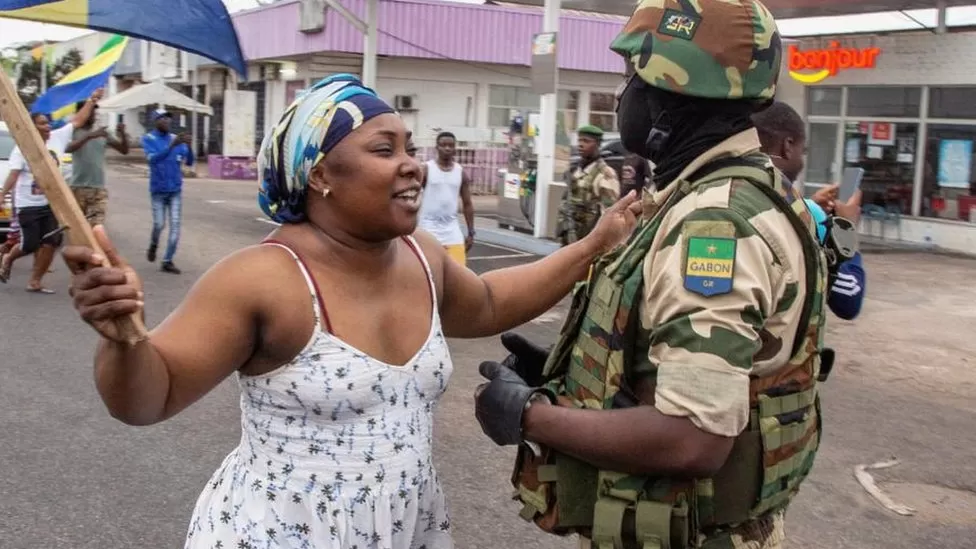Why military takeovers are all the rage

Within minutes of announcing Mr Bongo’s victory on national television in the early hours of Wednesday, a clutch of soldiers announced the former French colony had been overthrown.
Later in the day, as footage of celebrating crowds emerged – after the new junta lifted the internet shutdown imposed by Mr Bongo’s regime on the eve of the polls and maintained the shutdown throughout an opaque vote “count” – the deposed head of state appeared in an online video sent from his confinement.
In apparent hope that external pressure might override the shock turn of events, he appealed – in English – to his friends outside to “make noise”.
Even if Mr Bongo himself was caught unprepared by the coup, perhaps Africa and the world should not have been.
It was clear from the overthrow of Mr Bazoum in Niger on 26 July that West and Central Africa’s coup epidemic was far from over.
After Burkina Faso’s President Roch Marc Christian Kaboré was deposed by soldiers in January last year, he was dethroned by lower ranking colleagues on 30 September just eight months later.
Before that, two coups had taken place in West Africa in 2021. In May, Col Assimi Goïta, the architect of the previous coup, staged a second coup. In September, Guinea’s special forces seized President Alpha Condé from the Sékhoutouréyah palace in Conakry.
Similarly, in Chad, after long-time strongman Idriss Déby Itno was killed in battle in April 2021, a military council stepped in to ensure the succession of his son and the continuation of the regime.
In West and Central Africa, and in particular in former French colonies, what is happening?
In West Africa, every country has been governed by a multi-party constitution since the departure into exile of the electorally defeated Gambian ruler Yahya Jammeh six years ago.
While some authoritarian regimes survived in the center of the continent, the era of military takeovers seemed to have come to an end.
The past three years have seen seven coups in five countries, plus the strong-armed military taking over in Chad.
A number of factors have created conditions in which soldiers have felt they can step in with relative impunity, often with the support of a large segment of the urban population.
Even those who have been legitimately elected to office in West and Central Africa have become disenchanted with the traditional political class.
There are a number of reasons for such disillusionment – a lack of jobs and informal economic opportunities for both graduates and the less educated, perceived high levels of corruption among the elite, as well as resentment towards France’s lingering influence in many former colonial nations.
It is also deeply resented when civilian rulers manipulate election processes or constitutional rule in order to remain in power. After controversial amendments to constitutions, presidential term limits were scrapped.
In trying to force coup leaders to restore elected civilian rule, such abuses undermine the moral authority of bodies such as the African Union and the Economic Community of West African States (Ecowas).
Gabon doesn’t even have serious intentions of establishing or maintaining governance standards across its member states in the Central African regional bloc to which it belongs.
All of these factors have created an environment where soldiers feel increasingly emboldened about seizing power, claiming to offer a “fresh start” – but each coup has also been driven by specific national or narrow local motivations.
